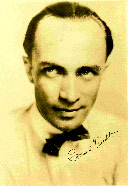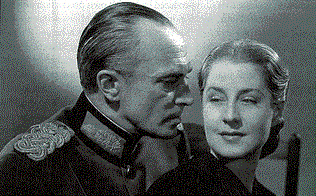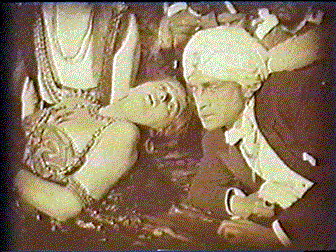
The Conrad Veidt Society
The following article was commissioned especially for the CVS website:
by Romano Tozzi and Peter Herzog
(authors of Lya de Putti: Loving Life and Not Fearing Death)
edited by G. Tabarez
Conrad Veidt's untimely death from a heart attack on a Hollywood golf course fifty-
ago robbed the world of one of the greatest screen actors of the century. He was only fifty and at the height of his powers. A true star with a magnetic personality and a distinctive speaking voice unlike any other, he had thrilled cinema audiences in every country where movies were shown for more than two decades. Unique and irreplaceable, he will always be remembered and admired by movie lovers and film historians.
When he died in 1943, he left behind two unreleased films -
Although he began his motion picture career in Germany in the teens under the guidance of celebrated director Richard Oswald, it was his terrifying performance as the monstrous somnambulist Cesare in Robert Wiene's masterpiece The Cabinet of Dr. Caligari (1920), widely distributed throughout the world, that made his name a household word. Still in circulation today, this father of all horror films retains the power to frighten audiences, and Veidt's uncanny characterization, aided by brilliant makeup, leaves an indelible impression on all who see it.
Veidt left Germany in 1933 because he refused to work under Nazi rule. He settled in England, where he enjoyed a large following, and there contributed excellent star performances in a number of worthy films.
An offer from Metro-
Conrad Veidt with Norma Shearer in Escape (1940, MGM)
Today, there is the Conrad Veidt Society, an international fan club, and the artistry
of Conrad Veidt is being appreciated by a whole new generation of cinema-

Conrad Veidt and Lya de Putti in The Indian Tomb (1921)
Click here for more pictures from The Indian Tomb.
The Great Conny